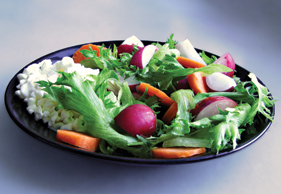Losing excess fat shouldn’t mean compromising your running performance! In fact, it should mean the opposite, especially if done correctly. Losing just 1kg in fat can make a huge difference with your muscle-to-weight ratio, and therefore benefit your running time and lessen the impact on your knees dramatically!
STICK TO THE PLAN
Firstly, when it comes to planning your nutritional needs, you need to determine whether you are a casual or a serious athlete. For the purpose of this article, let’s use for an example a 62kg female athlete who is considered a casual runner, as she runs 10km three times a week plus a longer session on the weekend.
Secondly, you need to determine your average hours of training, i.e. your total hours run per week divided by seven days. In our example’s case, 1+1+1+4 = 7. Seven divided by seven days equals one hour per day, her average training time per day.
Thirdly we need to work out how many units of carbs, protein and fat you need per day. These amounts are calculated using your sex, height, age and activity levels. Let’s presume our example runner’s height is 1.58m and her daily activity at work is low (i.e. computer-based desk work.
Determining the amount of carbohydrate you need: About 50% of your energy should come from your carbs as it is the main fuel for the body, especially for active people. Without glycogen (the storage form of carbs in the liver and muscles) the human body cannot function. In fact the body only has enough storage to fuel your body for 30 minutes of exercise at high intensity exercise like sprinting. At lower intensities of exercise, like jogging or casual cycling, the body can provide energy for about two hours, but only if muscle glycogen tanks were filled to begin with.
Someone who weighs 62kg, trains an hour a day and wants to lose weight, will need 8 x 15g carb units per day. (Remember that one tennis ball fruit portion contains 15g carbs, too, thus we will be using at least three fruit portions of carb units per day.)
Determining the amount of protein you need per day: About 15% (but absolute maximum of 20%) of your total energy intake should come from protein. Protein is important for tissue synthesis, regulating of bodily functions (such as hormone function) and supplying energy when the diet is lacking in protein or fat. Contrary to popular belief, excess protein can be harmful to the body, as any addition protein not used by the body will either be used as energy (only if carbs and fat are unavailable) or converted and stored as fat. The by-products of excess protein breakdown needs to excreted via urine, which places unnecessary strain on the kidneys. Many athletes suffer with kidney damage from eating too much protein! Our female 62kg athlete will need four units of 7g protein units per day.
Determining the amount of fat you need per day: Fat intake should comprise about 25-30% of your daily intake, because it is essential for energy, insulation, hormonal function and supplying the essential fatty acids omega 3 and 6 fats, as well as phospholipids that make up cell membranes. Make sure that most of your fats you consume are monounsaturated fats (MUFA’S) e.g. oils from canola, olive, peanut and cashews, or nuts like peanuts, almonds, pecans and cashews. Peanut butter, olives and avocado are also good sources of MUFA’s. Our athlete will need about four fat servings containing 5g fat each per day.
PUTTING IT ALL TOGETHER
Now put it all together. The following meal plan is base on our 62kg female running on average 1 hour per day (or 1hr three times a week plus a longer run on the weekend), with a weight-loss goal of between 0.5 to 1kg per week. This plan will not only help her shed excess weight, but also keep her energy levels constant so she does not have to compromise her training!
Click here for an example of a weight loss eating plan.
 Modern Athlete Expert
Modern Athlete Expert
CHRISTINE PETERS
Dietician at Sunninghill Medical Centre, Johannesburg. Member of Morningside Country Club with eight years running experience, including three finishes in the Two Oceans Marathon.


